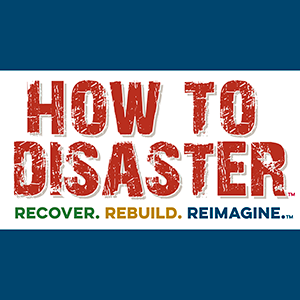Take 5 – After the Hurricane – Puerto Rico, New Orleans, Florida
“In five days, we had over $500,000, and it was just an incredible show of love for Vieques.” -Kelly Thompson
“Take the time when there is not a disaster to adjust from the lessons learned and to use these resources that are being put out there to build resiliency.” -Mark Martin Bras
“I’m always updating what’s in my house and what my house looks like for insurance purposes. Most people have a smartphone so you can do it.” –Christa López Ph.D., CEM
“That inequality that happens under colonialism creates a structural vulnerability that becomes exacerbated and highlighted.” -George Laws Garcia
We often talk about wildfires here at After the Fire. But in this episode, we are going deep into the extreme opposite of the spectrum, hurricane— a type of disaster that is equally deserving of our attention.
A hurricane or tropical cyclone is a type of storm that generally develops in tropical regions and has a brewing center below the surface of the ocean. Hurricanes are most common in the summer and fall.
And when the hurricane season approaches, it’s hard to not feel a sense of threat and dread. Whether you are a recent storm victim or looking to be prepared for future hurricanes, this episode is for you!
Our guests share steps to ensure that you have the resources you need to prepare and recover from this disaster. Here from Viequeslove’s Co-Founder Mark Martin Bras and Executive Director Kelly Thompson, Chief of Staff for Community Development and Revitalization for the Texas General Land Office Dr. Christa López, and Mirsonia Group’s Executive Director, George Laws Garcia.
Highlights:
01:32: How to Face Disaster on an Island (Hurricane Maria) with Kelly Thompson and Martin Bras
05:19: How to Serve Communities Pre and Post Disaster with Christa López PhD CEM
09:43: How to Bridge the Gap Between Federal and Local Policy with George Laws Garcia
Tweets:
Hurricanes are one of the most devastating and terrifying disasters. But there are a few things that we can all do to make sure that we are ready when it strikes and recover fast after it’s gone. Her from @AfterTheFireUSA CEO @JenGrayThompson, Mark Martin Bras and Kelly Thompson of @viequeslove, Christa López, Ph.D., Chief of Staff for Community Development and Revitalization for @txglo, and Mirsonia Group Founder, @LawsPR51. #Recover #Rebuild #Reimagine #NorthBay #podcast #wildfire #disaster #AfterTheFire #newseason #Season3 #HowToDisaster #Take5 #Hurricane #ViequesIsland #HurricaneMaria #communication #community #insurance #inequity
Quotes:
03:17: “In five days, we had over $500,000, and it was just an incredible show of love for Vieques.” -Kelly Thompson
05:01: “Take the time when there is not a disaster to adjust from the lessons learned and to use these resources that are being put out there to build resiliency.” -Mark Martin Bras
09:33: “I’m always updating what’s in my house and what my house looks like for insurance purposes. Most people have a smartphone so you can do it.” –Christa López Ph.D., CEM
11:41: “That inequality that happens under colonialism creates a structural vulnerability that becomes exacerbated and highlighted.” -George Laws Garcia
15:14: “It’s insane. It was very overwhelming. It was disorienting. — It is a total catastrophe. That basically went on for a few months before things started to settle down even a little bit.” -George Laws Garcia
Meet Mark Martin Bras, Co-Founder of Viequeslove:
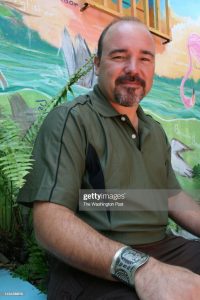
Mark has lived on Vieques for 20 years. Hailing from Puerto Rico he is an experienced community organizer who has spent the last few decades gaining the trust of all levels of society in Vieques Puerto Rico. While he is most associated with the Vieques Historical and Conservation Trust as a salaried advocate for the bioluminescent bay, he has given his time freely to others. He is bilingual and often serves as a translator for defendants in the legal system. He is considered a scientific expert on bioluminescence and is invited to do original oceanographic research by academic scientists worldwide. Martin Bras is considered by most children on the island to be their personal friend and their favorite teacher, and most federal, Puerto Rican and Viequenses politicians ask for him by name to be their translator, guide, and community negotiator. Immediately after Hurricane Maria Mark started organizing a team on Vieques and co-founded ViequesLove by connecting to the off-island team. He dedicated almost a year volunteering in relief efforts, as a liaison and translator for Tesla and a crucial team member of the group advocating for better power solutions on the island. He is now working for ViequesLove and is the community organizer and coordinator.
Meet Kelly Thomson, Executive Director of Viequeslove:
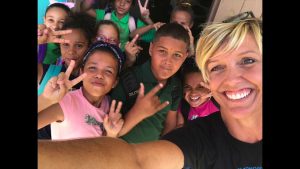 Kelly has lived on Vieques for 15 years and works tirelessly to serve the community. A graphic designer by trade she is the publisher and designer of Vieques Insider, a magazine designed to connect visitors to the people and culture of the island. Kelly was in Pennsylvania when Hurricane Maria struck Vieques and immediately started a GoFundMe to raise money for relief efforts. This fund quickly grew and ViequesLove was formed. Friends reached out to help and the group was able to send the first plane full of supplies and satellite phones to the island. Kelly volunteered for almost a full year for ViequesLove and is now a paid employee serving the organization as executive director.
Kelly has lived on Vieques for 15 years and works tirelessly to serve the community. A graphic designer by trade she is the publisher and designer of Vieques Insider, a magazine designed to connect visitors to the people and culture of the island. Kelly was in Pennsylvania when Hurricane Maria struck Vieques and immediately started a GoFundMe to raise money for relief efforts. This fund quickly grew and ViequesLove was formed. Friends reached out to help and the group was able to send the first plane full of supplies and satellite phones to the island. Kelly volunteered for almost a full year for ViequesLove and is now a paid employee serving the organization as executive director.
Connect with Viequeslove:
Meet Christa:
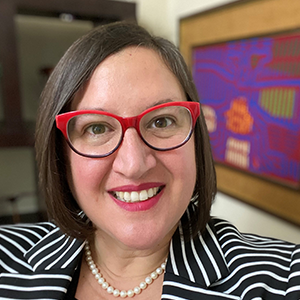 Christa López Ph.D., CEM is the Chief of Staff for Community Development and Revitalization for the Texas General Land Office, and she supervises Grant Operations. Dr. López is also overseeing FEMA Disaster Housing and HUD-funded CDBG-DR programs. Previously, she worked for the Texas Division of Emergency Management as the Section Administrator for Human Services and as the state Individual Assistance and Human Services Branch Director, and early on as a State and Federal Planner. Dr. López gained a unique set of skills from assisting her husband, Eduardo López in the operations of their crime, trauma, death, and gross filth cleaning business. She is a firm believer in being of service to others which is exhibited through her volunteer works. Dr. López earned her EMT license and two Master’s degrees – one in Counseling and one in Emergency and Disaster Management. She also has earned a Ph.D. in Public Policy Administration – Emergency Management. Her past experience involves working in Higher Education for 18 years.
Christa López Ph.D., CEM is the Chief of Staff for Community Development and Revitalization for the Texas General Land Office, and she supervises Grant Operations. Dr. López is also overseeing FEMA Disaster Housing and HUD-funded CDBG-DR programs. Previously, she worked for the Texas Division of Emergency Management as the Section Administrator for Human Services and as the state Individual Assistance and Human Services Branch Director, and early on as a State and Federal Planner. Dr. López gained a unique set of skills from assisting her husband, Eduardo López in the operations of their crime, trauma, death, and gross filth cleaning business. She is a firm believer in being of service to others which is exhibited through her volunteer works. Dr. López earned her EMT license and two Master’s degrees – one in Counseling and one in Emergency and Disaster Management. She also has earned a Ph.D. in Public Policy Administration – Emergency Management. Her past experience involves working in Higher Education for 18 years.
Connect with Texas General Land Office:
Meet George:
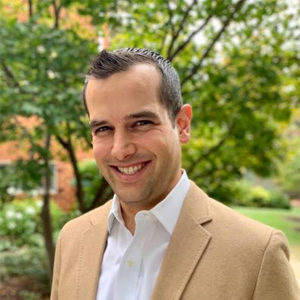 The Mirsonia Group is led by George Laws Garcia. With 15 years of experience in public policy and intergovernmental affairs, George has worked for and advised Governors, Members of Congress, Federal Agencies and National Non-Profit Organizations on a broad range of issues, strategies and programs.
The Mirsonia Group is led by George Laws Garcia. With 15 years of experience in public policy and intergovernmental affairs, George has worked for and advised Governors, Members of Congress, Federal Agencies and National Non-Profit Organizations on a broad range of issues, strategies and programs.
George most recently served as the Interim Executive Director of the Puerto Rico Federal Affairs Administration (PRFAA), the Washington D.C. office of the Governor of Puerto Rico. In this role he oversaw the agency and led its federal policy and advocacy efforts before the Executive and Legislative branches of the U.S. government.
He previously served in the U.S. Department of Commerce working with Members of Congress as well as state and local elected officials to promote the growth of minority businesses and minority entrepreneurship.
Prior to that, he worked as a policy advisor to Congressman Pedro Pierluisi in the U.S. House of Representatives, and before that as a legislative advisor to former Governor of Puerto Rico, Hon. Luis Fortuño.
He began his career in Washington working with various Latino non-profit advocacy and community service organizations in both a professional and volunteer role. He is a graduate of the University of Chicago and holds a Master’s degree from American University’s School of International Service. He is originally from San Juan, Puerto Rico.
Transcription:
Jennifer Gray Thompson: Welcome to Season 3 of the How to Disaster Podcast where we help you recover, rebuild and reimagine. During this season, we will be releasing Take 5 shorter episodes that highlight some of our past guests speaking about similar issues, themes, topics. We wanted to do this so that perhaps it would be easier if you only have a few minutes but you wanted to connect with these focused episodes and guests so that you could condense all their messages into one smaller bite sized piece. One of the things that we know about disasters is that we really have to meet people where they’re at. And sometimes, where you’re at is you only have five minutes. We’re very excited for the third season. We’ve got great guests, wonderful information and content about how to actually help get your community through to the other side, so thank you for joining us.
And if you wish to find out more, please visit our homepage at afterthefireusa.org. Consider giving us a like or follow if you liked this podcast. We really appreciate it, and thank you for your time.
From Season 1, Episode 16: How to Face a Disaster on an Island, Specifically Hurricane Maria in Puerto Rico. Mark Martin Bras and Kelly Thompson from Viequeslove.
“In five days, we had over $500,000, and it was just an incredible show of love for Vieques.” -Kelly Thompson
Kelly Thompson: One missing part of that puzzle was Hurricane Irma hit before Maria, so the island was completely without power. even before Maria. I left the island to work on the magazine, I needed power and internet so I went to the States with a roundtrip ticket for five days, and then realized power was not to be returned for some time. So as I was watching it and figuring out when to come home, we saw Maria forming off the coast of Africa, and that’s when we began to get a little bit nervous about what was going to happen to the island. So that evening, actually, my partner was still here on the island. My daughter and I were in the states. That evening, I set up a GoFundMe hoping to raise a thousand to $10,000 to maybe send down a satellite phone or something because there were really not any other groups that were off the island and accessible with power to put the word out that they needed help. I think that that’s why the Viequeslove GoFundMe grew and grew. And through the magazine connections with every person who had ever visited Vieques looking online to see how they could help. We had people from 1974 who came on their honeymoon here and never returned, but felt such a connection to the island that they gave $500. And the GoFundMe just grew exponentially. In five days, we had over $500,000, and it was just an incredible show of love for Vieques.
“Take the time when there is not a disaster to adjust from the lessons learned and to use these resources that are being put out there to build resiliency.” -Mark Martin Bras
Mark Martin Bras: And this is something that for me who we’re being very mission oriented, trying to help, that slipped me. and I learned a lot when they told me that we have Robert Baker, an expert and a political adviser who said, let’s set them up in a plaza and let people talk to their families. This will make for a communal calmness. And they did, and people got one or two minutes to talk,and they would reach, and we would help them because it’s a satellite phone. They would call, and it would be a progression. You see the people first like anxious, worried, then the phone would pick up and they would break down. We even had to prep him like, don’t cry, use your time well, ask him for what you need, let him know you’re alive. After that, we took the phone. And when that happened, there was a relaxation. And so we were able, they were able to function better. Little things like that that you learn to adjust from. We had a hero here, a guy on a pathfinder with a ham radio, amateur radio. And when nobody could talk to anybody, that one guy would go to the hospital, would go to the police and he would talk to anything, so we learned from that. And Kelly started a program with a transformer, a local group here. Now, there’s 42 radio operators with radios in an emergency net including boats for fishers, people on cars, resiliency hubs. Vieques did not have a resiliency hub. Now, it has three to build one building. So part of the real essence is take the time when there is not a disaster to adjust from the lessons learned like what we’re talking about here now, and to use the resources that are being put out there to be resiliency, and it was certainly a learning experience for us.
From Season 2, Episode 9: How to Serve Communities, Pre and Post Disaster. Dr. Christa Lopez, the Deputy Director at the Texas General Land Office.
Dr. Christa Lopez: I interviewed disaster survivors in Rockport, Texas. That was the area that first experienced the landfall of hurricane Harvey. I went to understand what their experiences were with volunteers and then dive deeper into, did the volunteers respect the culture of the community? Did the community even identify what their culture was before or after the disaster? And then, if they had that magic ball to train and advise future disaster volunteers, what would those considerations be? So it was interesting when I’ll go to the culture, the Community First, I heard very clearly in that community, there’s a case to have and have nots. So it’s a coastal community. It’s a small coastal town. And along the coastline like many coastlines, there’s some very expensive homes and some pretty wealthy individuals. And as you move away from the coastline, you have the working class of the community, you have individuals who have lived in that community for years, you have folks that have worked on tropic boats for generations, fishing boats for generations. And so they tended to be the have-nots, they had their own sense of community, they had their own sense of purpose, but it was almost as if there were different pockets within just a very small town of different cultures based on class, some are based on race. But mostly I saw a very large class division.
I have one couple interviewer who recounted a story that they were in line to register with FEMA and to talk to SBA about assistance, and they talked about how they came from, they were working class families, and in line was a gentleman who was from a very wealthy portion of town. And they said, I know , had it not been for Harvey, this gentleman would have never talked to us, but we bridged a friendship with him because we have a common shared experience, and we still have that same shared experience. And so they still have a relationship with him now. And have it not been for that disaster, they may have never had that opportunity to meet.
“I’m always updating what’s in my house and what my house looks like for insurance purposes. Most people have a smartphone so you can do it.” –Christa López Ph.D., CEM
Tornadoes are the same thing. Your house is gone when a tornado hits. And so I met with a couple whose house was completely gone and their insurance company was like, well, how do we know this is what you had in your house? And I met with him and said, after the event, somebody in the family was standing around the crackheads. And they were like, and we were just here last week, and we were just having a big old family celebration, blah, blah, blah. And I was like, wait, did they post pictures on Facebook? And they were like, yes. I was like, pull those pictures up, you have photos of the house, you have photos of the contents, so it’s not always lost. Think about what you did leading up to that. Social media can be really powerful in that sense, because how many of us take selfies or do videos, or whatever have you, and you might have that video? But you’re absolutely right, Jennifer. Every time I go on vacation, I use that as my mark. Or even if I travel for work, I use that as my reminder before I leave the house. I took a videotape of my house. As my house is robbed while I’m gone, I have proof. But then, I’m always updating what’s in my house and what my house looks like for insurance purposes. Most people have a smartphone so you can do it.
From Season 2, Episode 17: How to Bridge the Gap Between Federal and Local Policy. George Laws Garcia of the Mirsonia Group, and most recently, the Executive Director of Puerto Rico Federal Affairs Administration in Washington DC.
“That inequality that happens under colonialism creates a structural vulnerability that becomes exacerbated and highlighted.” -George Laws Garcia
George Laws Garcia: So for some things, we were domestic for some things. We are international, like federal tax law. But then what ends up happening is that it leads to a systemic underinvestment in key, both hard infrastructure like electric grids, roads, bridges, telecommunications, etc. And then it also leads to huge underinvestment in soft infrastructure, which is the education system, health care, etc. And as a result, when the hurricanes Irma and Maria hit, we had a total power outage across the entirety of the island. The Puerto Rico Electric Power Authority, PREPA, basically had a 100% failure rate across the island. And it was devastating. That ended up being the number one factor that led to over 2800, close to 3000 excess deaths as a result of the hurricane. So while some people died from injuries sustained during the hurricane, or collapses of infrastructure, those tended to be relatively small, but a huge number of the people who died which probably wouldn’t have died if we hadn’t had the hurricane. They died because their electricity was out and they didn’t have the access to transportation to get them the health care that they needed. Or they’re either elderly people, their ventilators or other medical equipment wasn’t functioning, their refrigerators for their medicines weren’t operating. So it was pretty devastating. So that inequality that happens under colonialism creates a structural vulnerability that becomes exacerbated and highlighted. And basically, the mask was taken off of the situation in Puerto Rico when the hurricane happened.
In 2017 was possibly one of the hardest years of my life. I sit here today in 2021. But if I think back to that moment, hairs in my arm get raised because there’s just a lot of emotion associated with it. I was serving at the time as the deputy director of the Washington DC Office of the Governor of Puerto Rico, so I wasn’t physically located in Puerto Rico, and we had to back to back Category 4 hurricanes. Hurricane Irma which came first and grazed Puerto Rico’s Northwest portion. There was an island municipality, Vieques, that was heavily impacted. There were power outages throughout the island. But within a few days, most of the power had been restored. And then less than two weeks later, we got hit by Hurricane Maria, and hurricane Maria had been a Category 5. It just downgraded before hitting Puerto Rico, but it was a very powerful Category 4 which is incredibly devastating in terms of the speed of the wind, the amount of water that came, and it crossed through the center of the island from one end to the other diagonally. And that meant that there wasn’t a single inch of Puerto Rico that was not heavily impacted by the hurricane. In Washington, DC, our office essentially went from one day being an operation that mostly focused on public policy issues supporting the governor’s agenda, and lobbying Congress and interacting with the federal executive to all of a sudden becoming a disaster response center. The government of Puerto Rico as a whole was essentially shut down. Electricity was shut down across the island. Our entire telecommunications infrastructure was shut down. For several days, it was just sat, anyone who wanted to communicate had to have a satellite telephone to be able to do that.
“It’s insane. It was very overwhelming. It was disorienting. — It is a total catastrophe. That basically went on for a few months before things started to settle down even a little bit.” -George Laws Garcia
So from one moment to the other, our office became the only entity in the entire government of Puerto Rico that was fully operational. So we were in direct communication with the White House, with FEMA, with the governor, which thankfully we were able to communicate with him, but we were channeling all of his communications through our office. And we were also the recipient of an overwhelming amount of attention and requests for assistance from those 5 million Puerto Ricans that live stateside that were worried sick about their 3 million family members on the island. They were calling, no one was answering, text messages were left unanswered and people had this huge sense of fear and desperation not knowing what was going on. To give you an idea of the scale of what we confronted, I think in a 48-hour period, our phone system handled about 30,000 calls. It’s insane. So it was very overwhelming. It was disorienting. There was so much to do that it was very hard to kind of wrap your head around. And my job was basically to continue facilitating the governor’s communication with all the pertinent federal authorities, the FEMA, White House Department of Defense, every other federal entity that could be brought to bear in that situation. And then also to begin outreach to Congress to let them know, hey, this just happened. The scale of devastation is unknown as of yet, but it looks like it is a total catastrophe. So that basically went on for a few months before things started to settle down even a little bit.
